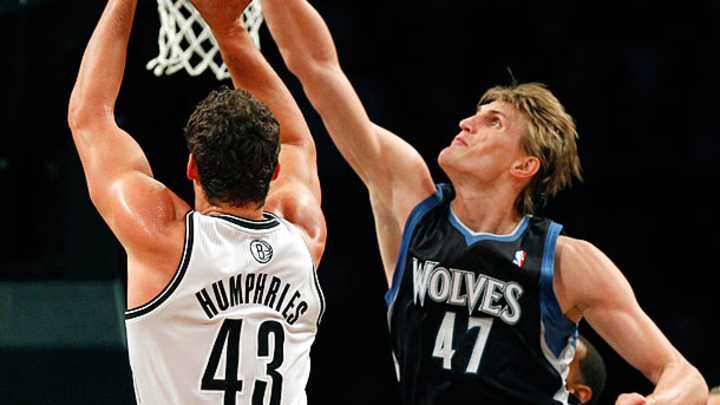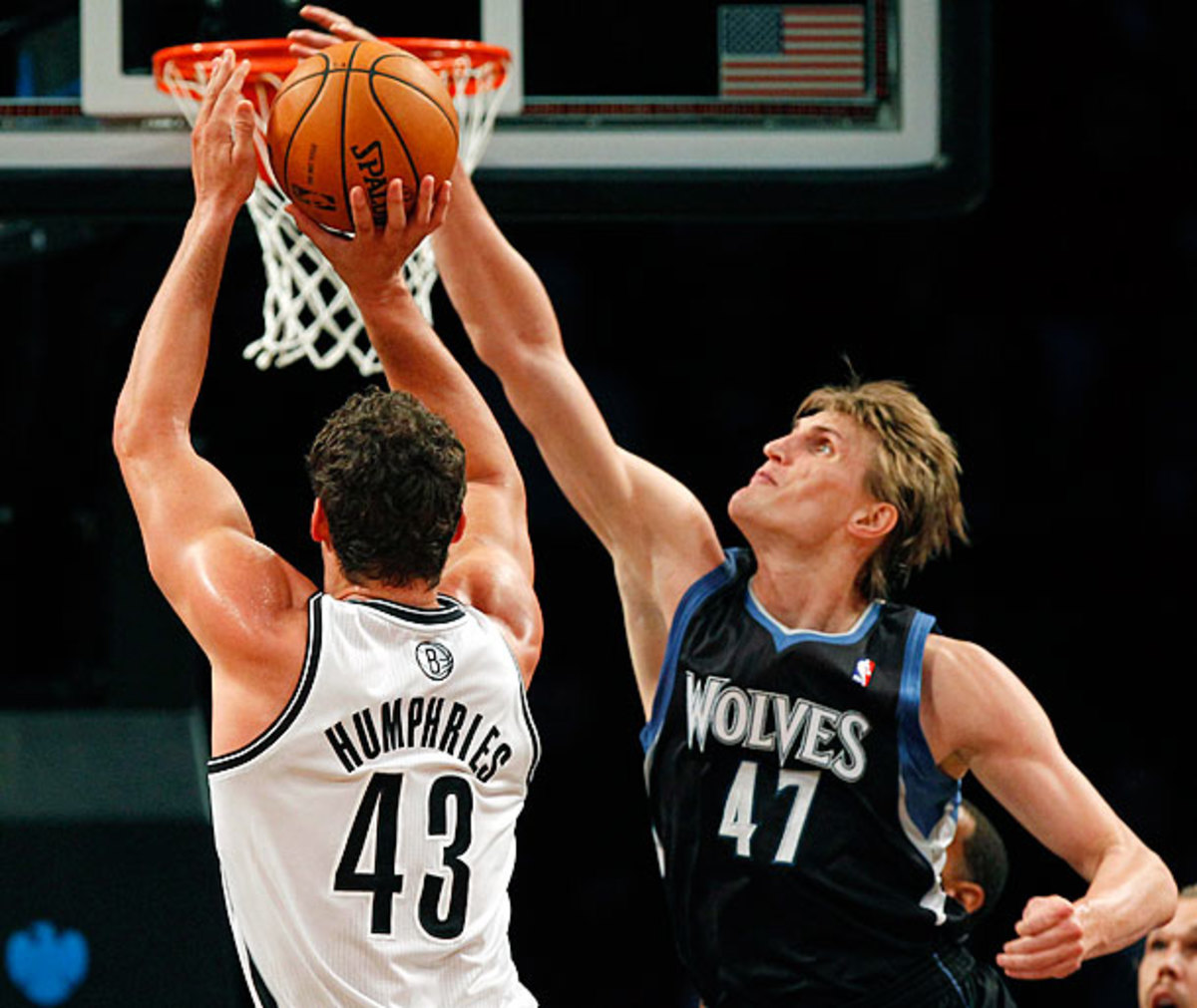Commitment to defensive philosophy keeps Wolves afloat despite injuries

Andrei Kirilenko and the Timberwolves rank seventh in points allowed per possession. (Adam Hunger/Reuters)

By Rob Mahoney
Fate seems to be chipping away at the feet, ankles, knees and hands of the Timberwolves.
First fell Ricky Rubio, the soul of the Wolves' renaissance, downed by a torn ACL. Then went Kevin Love, taking his MVP-caliber production with him on a months-long recovery from a broken hand. Microwave-like guard J.J. Barea soon followed, the victim of a freak foot sprain. Brandon Roy, too, was pulled off the court, not long before Chase Budinger tore his meniscus and required season-altering surgery. Even Nikola Pekovic turned his ankle and exited Minnesota's most recent game.
There are unlucky teams, and then there are the 2012-13 Timberwolves -- early victims of misfortune piled on misfortune, and the improbable owners of one of the Western Conference's best records.
"We just keep losing guys," forward Andrei Kirilenko said. "It's like in the old ancient times. ... There was that one king who was always winning the battle but losing so [many] people during the battle. So we're like that king -- winning battles but losing guys. What can we do? We just keep playing hard and try not to lose."
And, remarkably, those efforts are paying off. Minnesota has gradually been stripped of four starters and two critical reserves, and yet Kirilenko and his few healthy teammates have managed to win five of their first seven games by banking on a seemingly impossible level of continuity. It's early in the season and Minnesota's lineup has been marred to the point of being unrecognizable, but the Wolves have quickly established an identity and the resolve to play by its directives. In the absence of a superstar, an offensive rudder and any semblance of good health, the Wolves have established themselves as a smart and hard-working defensive team.
"Our defense has been terrific night after night," coach Rick Adelman said. "We had one bad game together in Toronto where they shot the three really well. We also had a game against Brooklyn where they shot the three for three quarters really well. But other than those six quarters, we've been very consistent, night-in and night-out, guarding people. I think with the injuries and everything you have to have that to give yourself a chance to win in the fourth quarter. Our guys have really bought into that and we've been defending very well."
The Wolves rank seventh in points allowed per possession, but even more impressive are the specifics of their defensive profile. Adelman's team has played the best shot defense in the league (as measured by effective field-goal percentage) without overcommitting on its contests or giving opponents free trips to the foul line -- a combination of defensive system and savvy that has kept an otherwise limited team competing at a high level. Minnesota doesn't force all that many turnovers, but instead subscribes to a defensive philosophy built on smothering dribble penetration and then closing out hard on perimeter shooters to funnel them toward more inefficient attempts.
That may leave the Wolves a bit vulnerable to the more precise drive-and-kick offenses, but it also allows an energetic team to compensate for its lack of a standout interior defender. Pekovic is surprisingly mobile, but simply isn't equipped to aggressively pressure pick-and-rolls or deter opponents from attacking the basket. So instead, Minnesota's D uses Pekovic as an obstruction while relying on swarming help from Kirilenko and perimeter players.
"[Adelman] wants to start his defense from the inside and work out," Roy said. "I don't want to say that he doesn't care if a guy gets a three-pointer on the weak side, but he much prefers if everybody collapses in the paint and works their way out to shooters. Our strategy has been that whenever a guy has the ball and is attacking the paint that everybody collapses in, and when they kick out to find shooters, we just have to do a good job of rotating out and closing out. And because of that, we put a lot of pressure on one another to make sure we're ready to help."
It's a creative use of the personnel available, and one that has held up surprisingly well given all of the compromises Minnesota has had to make because of injury. Playing good team defense typically requires a consistency in execution and a familiarity between teammates, both of which are complicated given the early injuries (to say nothing of the Wolves' remodeled roster). But Minnesota makes it all seem so easy, in part because of the stability that Adelman himself lends to the entire operation.
"In this locker room, we just have a great focus," Roy said. "We're not going to complain or point any fingers. We're just going to continue to go out and play. That trickles down from the top -- that's just how coach is. He hasn't changed one thing about how he coaches since guys went out. It's the same way every day. And because of that, I think our mindset's been pretty much the same also. Whoever's in here has to go out and do the job, and he expects you to do the job."
It's one thing for a coach to expect such effort and returns, and another entirely for a teacher like Adelman to actually instill in his team the necessary tools. After all, accountability is only a realistic expectation if the players have the systemic facilities to achieve the team's goals. It's clear from their play and their comments that the Wolves are on the same page in that regard and sharing in the notion that their execution need not be determined by their horrible injury luck. Minnesota's players don't need Love on the court in order to make the correct rotations, nor do they need Rubio in the lineup in order to make the extra pass. The only true requisite is a belief that the details matter -- that all of these reps and all of these games aren't lost because of sprains and breaks and tears.
